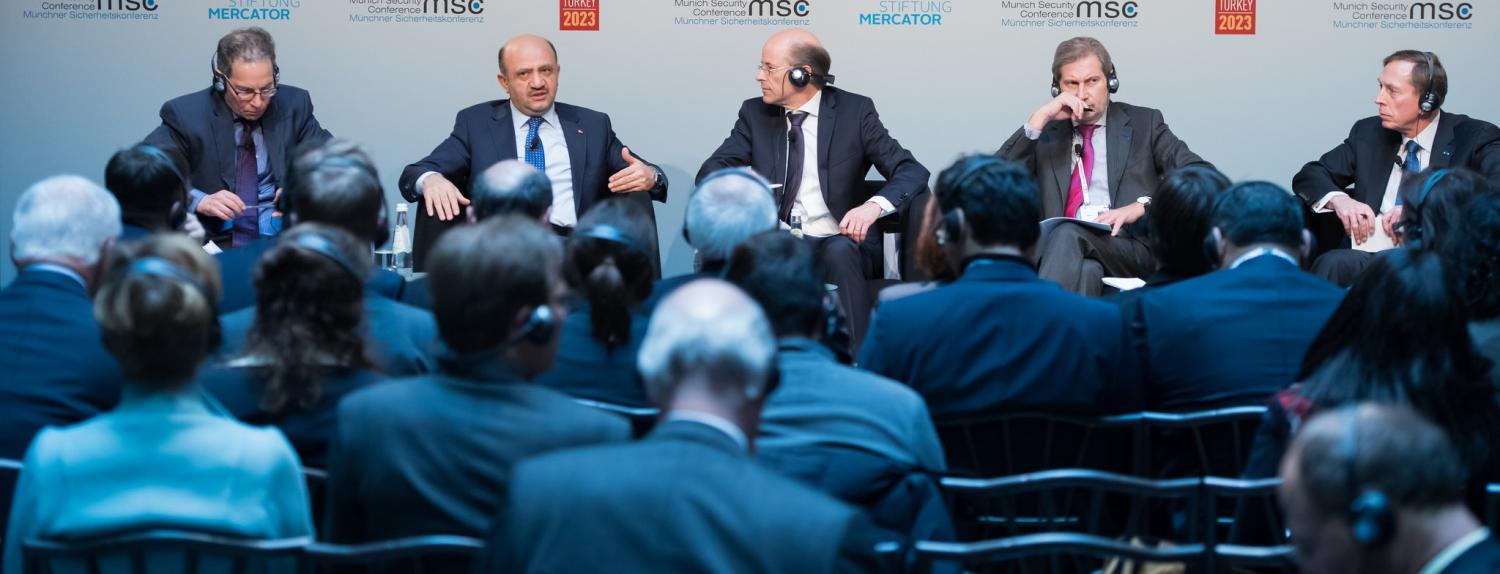About two years ago I stopped attending all-male panels. After surviving on a diet of 'manels' for so long (I suspect I've consumed hundreds in the past 15 years) going cold turkey might seem extreme. Yet no matter the calibre of presenters or commentators, I found I just couldn't sit through, listen to, or read about the views of another all-male line-up. There was a cost-benefit analysis angle to this. Going to events, listening to radio podcasts, watching TV discussion shows, and reading media reports consumes time, and I increasingly found I rarely benefited when there was a lack of diverse views. But the main reason was I'd had enough. I'd well and truly over-indulged. I had reached peak manel.
Reaching peak manel was a process born out of one central question I just couldn't answer. Why do they still exist? There are plenty of explanations designed to excuse them but none are strong enough to outweigh the costs. Here are just four ways a manel can damage:
1. It makes you look incredibly lazy
There's not a topic that warrants an all gender line-up unless it begins with 'a [enter gender] perspective on…'. Whether you are looking at the South China Sea, cyber-security, policing in Indonesia, Papua New Guinea's economy, or the future of intelligence collection, there are women in government and non-government that could fill your void 10 times over. It doesn't matter if you need speakers or media sources, a 10-minute Google session will almost always yield plenty of options. If it doesn't, ask your male contacts or take a look at the growing number of online databases for female experts around the world.
2. It shows you have a network problem
Bringing people together for a conference, meeting or media interview reflects an organisation's networks (and attractiveness to potential networks). If the bulk of your speakers, attendees or sources cited are male (or female for that matter) then you don't just have a gender problem, you have a network problem, which you've just made public.
3. You've opened yourself and your sponsors up to unnecessary reputational risk
Manel backlashes are common, and in the digital era they regularly overshadow events. You might not experience an all-out revolt but the gender inequality on display is almost certainly being discussed on conference sidelines, at social events, and on social media (often as the event is in full-swing).
Manel hosts (and the organisations that fund them) may even be permanently shamed on the Internet by way of David Hasselhoff meme. And once memed, you become easy fodder for news media.
4. People aren't buying what you're selling
Finally, and here's the real kicker, few people buy that all-male panels reflect the best expertise available. For example, in a recent online Lowy Institute survey we asked members of Australia's international relations sector (across government, civil society and business) whether they personally agreed or disagreed with the following statement:
Usually when there are panels of all-male speakers at conferences, it is because there were no women qualified for the panel.
Some 87% of the 456 respondents to this question said they disagreed with the statement. Of these, 456 respondents (63%) 'strongly disagreed'. On the flip side, 1.5% of respondents strongly agreed with the statement and another 7% 'somewhat agreed' (4% selected don't know/no view). This was one of the few questions that men and women both felt strongly about.
All four of these reasons (and there are more) have one central theme flowing through them. They are all bad for business: each affects an organisation's public image. So if manels are a liability in 2017, why do they continue to thrive in Australia today? Much like pandas, it appears they are being propped up to survive when nature had planned their extinction long ago. But keeping pandas going serves multiple purposes beyond the obvious ecological value. Their adorable and hilarious clumsiness brings hundreds of millions of people together online. They give the Chinese Government an incredible soft power asset. In contrast, the continued existence of manels brings nothing to the table. Rather than being an asset, manels are a detractor.
International Women's Day, the only day you're guaranteed to sight the rare all-female panel, seems like an appropriate time to call for the end of the manel. Enough is enough. Its existence defies economic, political and social logic. Unlike many of the barriers women face in the workforce that are complicated and require multi-faceted and mutli-year policy solutions, exterminating the manel presents organisations with an easy win, and one that will result in overnight change. It only requires that CEOs, vice-chancellors, think-tank heads and departmental secretaries start taking panel parity seriously. This means enshrining similar expectations in funding arrangements that government departments and businesses have with civil society partners (frankly, some government-funded institutions are amongst the worst offenders). There are many ways in which Australian organisations and individuals can better support and advocate for gender parity in our public discourse. Letting manels finally rest in peace is just one of them.
